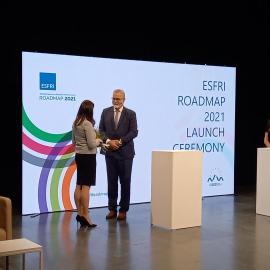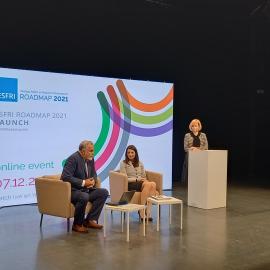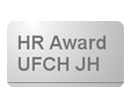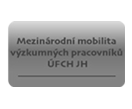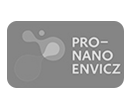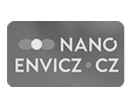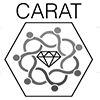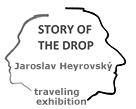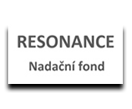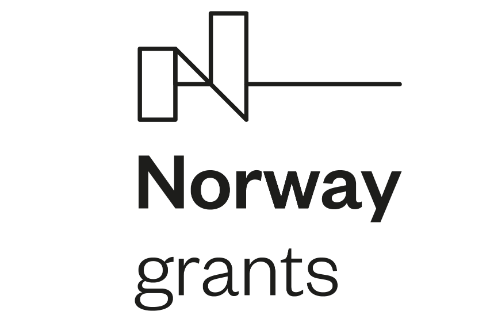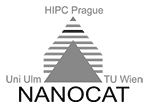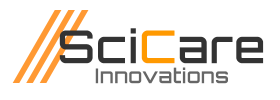ESFRI Roadmap 2021 Launch Event
The sixth ESFRI Roadmap (2021) - Strategy Report on Research Infrastructures - was publicly presented on 7 December 2021, in the framework of the Slovenian Presidency of the Council of the EU events, in a virtual celebratory broadcast from Ljubljana.
In a widely attended online event, full of new information and insights, the Research Infrastructures (RI) ecosystem in Europe had a unique opportunity to celebrate the 2021 Update of the ESFRI Roadmap. Among the invited participants were high-level EU officials, ESFRI delegates, representatives of RI projects and policy bodies, national and regional authorities as well as media.
The ESFRI Roadmap 2021 is the sixth edition of the document, which has been influencing the European and national RI strategies, policies and funding since 2006. ESFRI periodically updates its Roadmap to provide a coherent and strategic vision ensuring that Europe has excellent RIs in all fields of science and innovation. The key messages of the 2021 edition of the Roadmap, prepared during the COVID-19 pandemic, clearly underline the importance of world-class RIs in enabling cutting-edge research to address the pressing requests and challenges of our society. This Roadmap, with the highest total cost of pledged investments since the first edition in 2006, also demonstrates the persisting willingness of national governments to invest substantially in improving RI capacities in Europe, as an important element of long-term scientific sovereignty and crisis preparedness. “The ESFRI Roadmap 2021 paves the way for a fully developed European Research Infrastructures ecosystem,” said Anna Panagopoulou, Director of ERA & Innovation, DG Research & Innovation, European Commission.
The ESFRI Roadmap 2021 includes 41 European Research Infrastructures which have already been implemented and 22 projects that are in their preparatory phase. The total investment in these, often globally unique, facilities will exceed EUR 25 billion. Jan Hrušák, ESFRI Chair, highlighted: ”The Roadmap introduced the concept of readiness implementation based on the need to deliver science and services to communities, to have RIs operational. This was projected to the evaluation procedure. Furthermore, the 10 years rule was introduced. RIs have to be implemented, start to deliver services.” The needs of relevant strategic positioning of RIs in ERA are better understood.
RIs on the ESFRI Roadmap contribute to key EU policy priorities, such as the Green New Deal, Twin Transitions and Health Union. They facilitate the development of science-based solutions to key societal challenges, as illustrated with the COVID-19 platform. The services they offer could play an important role in implementing Missions and achieving Sustainable Development Goals. The ESFRI Roadmap 2021 is a vivid demonstration of the high merit and potential of European collaboration in developing visions and sustainable perspectives for an interoperable Research Infrastructure ecosystem as a key asset of Europe.
RIs are an essential pillar of the research and innovation area. RIs are important not only for delivering services for excellent science but also for the services driven and impact-oriented approach. RIs are maintaining excellent science criteria important for the European innovation domain, as it is captured in the Strategic report, Landscape analyses of the Roadmap as well as future-oriented policy messages of ESFRI. The strategic oriented Analysis allows us to understand the interconnectivity of the RIs and linkages of this interconnected research ecosystem, to identify gaps, to provide strategic advice to national and European authorities and to provide advice on future investment into RIs.
The ESFRI Roadmap 2021 is published, nevertheless, the mission of ESFRI continues with challenges to be elaborated such as the position of RIs in the renewed ERA, stakeholder engagement and communication, monitoring of operational RIs, broadening innovation ecosystems of RIs and connection of RIs to EOSC. It should be emphasized that ESFRI Roadmap is more than just a list of projects, the Strategy Report and the Landscape analysis are of equal strategic importance. “I am convinced that, building on almost 20 years of experience, with strengthened capacity and increased effectiveness, ESFRI can lead the way towards a future where science-based solutions born in an interconnected collaborative research environment surmount not only COVID-19 but also all the other challenges ahead of us”, concluded Jan Hrušák. After introducing the basic aspects of the ESFRI Roadmap, Jan Hrušák officially handed the document to Minister Simona Kustec (Ministry of Education, Science & Sport), representing the Slovenian Presidency of the Council of EU).
During the high-level policy panel moderated by Jana Kolar, the Minister together with Jean-Eric Paquet (Director-General for Research & Innovation, EC), Pavel Doleček (Deputy Minister of Czech Ministry of Education, Youth and Sports), and Marco Giungi (diplomatic advisor of the Italian Minister of Education, University and Research) discussed how research infrastructures can further contribute to an evolving research and innovation environment, to sustainable European economic growth and to address the key global challenges. All panellists agreed that implementing the ESFRI Roadmap via adequate funding, synergies, inclusiveness and increased visibility and impact is now the major task for the EC, the Member States and the scientific community.
“The agenda of RI is of great importance having strategic potential”, emphasized Pavel Doleček. This became the key priority of the Czech presidency of the EU. ICRI, the worldwide important conference on RIs, will be hosted by the Czech Republic in October 2022. Pavel Doleček expressed hope that the debate on a high political level would result in the endorsement of Council conclusion on RIs thanks to the fact that RIs are seen as part of the critical ERA infrastructure.
Apostolia Karamali (head of the unit Research & Innovation, European Commission) stressed out the priority areas from the Pact for R&I (Council Recommendation on a Pact adopted on 26 November 2021), setting out the voluntary ERA actions. These actions are identified to ensure the impact, credibility, and effectiveness of the new ERA. Especially Action 8 - Strengthen sustainability, accessibility and resilience of RIs in the ERA is relevant for RIs.
The ESFRI Roadmap Launch event also provided the opportunity for their coordinators to introduce the newly included RI projects. The subsequent panel discussion was devoted among other topics to the strategic issues on the European RI ecosystem.
During the closing session Jan Hrušák, Jana Kolar and Apostolia Karamali pronounced the ESFRI Roadmap as a vivid demonstration of the high merit of potential for European collaboration and expressed their deepest appreciation for the effort and excellent input of more than 250 individuals from all over Europe (Working Groups members, Forum delegates and European Commission agents). They also once again stressed the huge capacity of RIs to react swiftly to challenges even under extreme conditions, the need to move their contribution to the next level, and the willingness to join forces with all stakeholders in delivering the new ERA.
Record of the entire event is accessible at: https://www.youtube.com/c/ESFRI-EU
ESFRI Roadmap 2021 can be downloaded or browsed online at: roadmap2021.esfri.eu
Press Announcement with the list of new Projects is available at: https://www.esfri.eu/sites/default/files/Roadmap2021_launch_event_press-announcement_final_1.pdf



